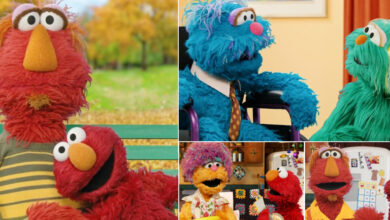Parenting
11 Surefire tips to motivate children to do chores
 Unless you are happy to live in total chaos, we all know that getting through day-to-day life as a family requires the completion of a million little tasks on a somewhat regular basis throughout each day.
Unless you are happy to live in total chaos, we all know that getting through day-to-day life as a family requires the completion of a million little tasks on a somewhat regular basis throughout each day.
Dogs need walking, garbage needs taking out, tables need setting. And this shouldn’t fall solely on the shoulders of the parents. It’s only fair if all family members do their share of the work – at least in theory. Making this a reality can often be much more difficult! Throw in a deployment or tasking that has taken one parent away, and things can get even more out of balance.
But research shows that kids benefit in many ways from doing chores around the house. Kids are more likely to eat a meal that they help prepare. Chores teach responsibility and a work ethic. Chores also teach valuable life skills that young people will eventually need – there is nothing quite so pathetic as a 20-year old who can’t do his or her own laundry.
But how do you get kids on board? Here are our sure-fire ways to get your kids pitching in:

1. Start them young!
Little kids often see chores as play. Let your preschooler help wash dishes, sort laundry, brush the dog, or vacuum a rug. Give your toddler a damp cloth to “dust” with. Children who regularly pitch in from a very young age come to accept this as a normal part of their family’s culture.
2. Try not to complain too much about household tasks.
If your children overhear you moaning about how awful/boring/endless it all is, they will develop that attitude as well. Instead, try to frame it in a way that is more positive – “let’s get these dishes done since it’s so nice to wake up to a clean kitchen.”

3. Be consistent.
Insist that toys are picked up at the end of EVERY day. Dishes are ALWAYS brought to the counter. Beds are made EVERY morning.
4. List of chores.
Most children benefit from having a set list of chores that need to be done on a predictable basis, rather than just having favours asked as they arise. For example, you might want to frame the chore as “Sally does the dishes on Monday, Wednesday, and Friday” rather than just asking Sally to do the dishes when the sink is full of dirty plate.

5. Set aside a regular time to do chores at home.
For example, maybe everyone gets to work after dinner: someone does the dishes, someone else folds a load of laundry, and someone else cleans the litter box. I know a family who sets aside each Saturday morning for chores. No one is permitted to make any outside plans. They work together getting the house cleaned up, the laundry done and the groceries bought. Find something that works for you and your schedule.
6. Stop nagging.
If you want to stop nagging, make a deal with your kid. For example, they have until noon on Saturday to clean their room. If you have to remind them at noon, then they do the bathroom too.
Don’t use chores as punishment, unless they are a direct consequence of misbehavior. For example, if Johnny decides to jump in mud puddles, it makes sense to have him wash his dirty boots and clothes. But it doesn’t add up to have Sally clean the whole house, because she was late for school.
7. Find your kid’s currency.
For some kids, it’s a sticker reward chart! For others, bonus screen time is the ticket! I know a 13-year old girl who gets to play around with her Mom’s makeup if she does her chores. That said, be careful not to get into the habit of rewarding your child with stuff. Over the long term, it could get very expensive if you are constantly buying stuff as an incentive for cooperation!

8. Allowance?
There is debate as to whether allowance should be tied to chores. Some parents don’t believe in giving their child an allowance, some see allowance as separate from chores, while others tie allowance directly to job performance. Each family needs to decide on this issue for themselves. But once you have decided, it’s important to be consistent!
9. Don’t use chores as punishment.
Don’t use chores as punishment unless they are a direct consequence of misbehaviour. For example, if Johnny decides to jump in mud puddles, it makes sense to have him wash his dirty boots and clothes. But it doesn’t add up to have Sally clean the whole house because she was late for school.
10. Don’t be afraid to give your kids a chore “promotion.”
Once they have mastered one job, gradually increase the level of difficulty. For example, weeding can lead to cutting the lawn. Folding towels can lead to washing and drying the load. Just make sure to frame it as an upgrade – something only big kids get to do!

11. Give them freedom
As long as you are getting what you want, let kids have a certain degree of freedom in how they do the chore. A bit of autonomy can go a long way with some kids.
There is little doubt that your family will benefit from your kids doing chores. They will learn valuable life skills and enjoy the pride in a job well done. Your home will be in tip-top shape or some variation of it. And you won’t have to be the family martyr – because no one likes a martyr anyway! Get those kids pitching in, and you just might have more time for some of those fun things that you’ve been itching to get to!










